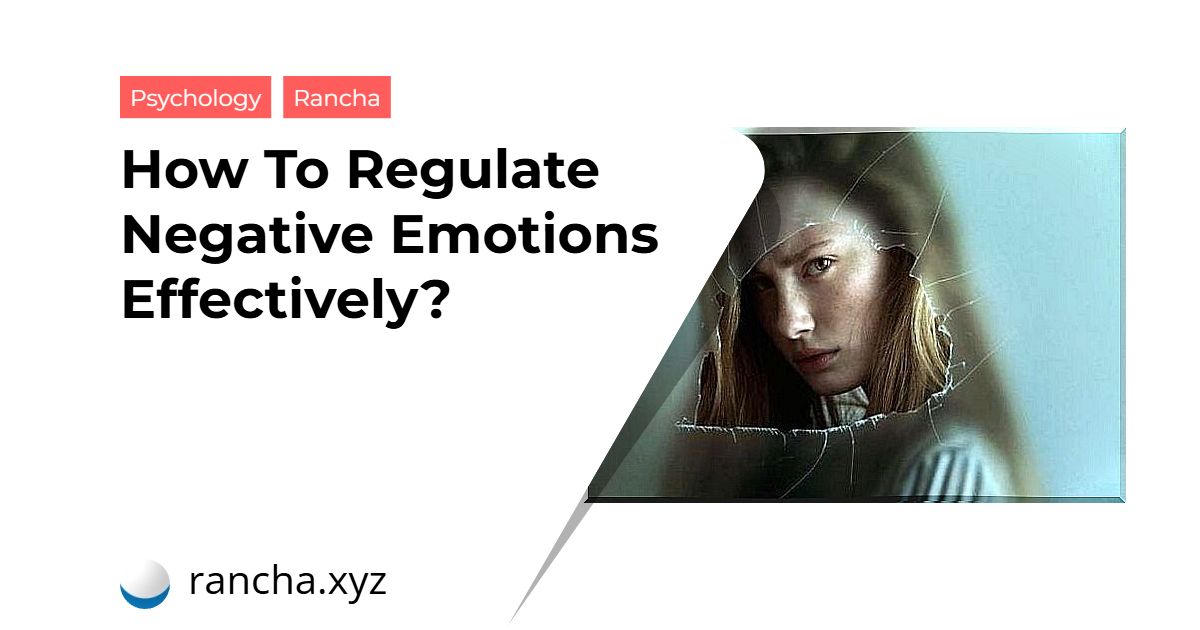Have you ever stopped to think about how you tend to react when you feel bad? Do your attitudes really help to reduce the discomfort? The truth is , sometimes we don’t know how to effectively regulate negative emotions. Or at least when we do, we still have a lot of room to improve.
Let’s look at an example: who doesn’t know someone who, after a painful separation, started going to parties in order to overcome the sadness and anger they felt? It may be that, at first, he managed to distract himself. But in the long run, did that help resolve anything? Or, instead, was well-being restored by putting in place another type of strategy?
Classifying the different ways to regulate negative emotions
Emotional regulation encompasses a set of processes. Through them, people exert influence on our emotions. More specifically about when we have them and how we feel and express them. In other words, it concerns how we behave. This way of behaving can be adaptive (beneficial and functional) or maladaptive (dysfunctional). But how do we know which ones help us and which ones don’t?
Before answering that, let’s get to know the different ways of regulating the emotions that we put into practice. On the one hand, we can try to regulate negative emotions by putting active strategies into practice. Some of them are: positive reassessment of the situation, planning what we need to do, seeking personal development, trying to solve the problem or expressing what we feel.

On the other hand, we can use other more passive strategies, such as conforming to the situation, reacting in a depressive way or letting go, without trying to resolve it. Finally, there are avoidance strategies, in which one tries to deny, distance or mentally disconnect from the event and even putting into practice palliative responses that combat anxiety, and not the cause (such as eating or drinking to feel better).
What ways to regulate negative emotions don’t help us?
Dysfunctional emotional regulation strategies make us more emotionally unstable. Furthermore, they make negative emotions take on a prominence and remain in us. The results of this lack of regulation can be quite varied, but none of them are positive. We talk about anger management issues, anxiety issues, or depression issues.
As we’ve already mentioned, inside this chest of bad strategies, we have the avoidant strategies and the passive strategies. When we feel bad, it’s counterproductive to try to deny what happened. But there is an exception. When a news has a very strong emotional impact, in these cases, these strategies can serve in the first moments as a retaining wall for that emotional impact. However, even in these cases we must eventually abandon these strategies and adopt others.
It’s also not going to help anything to go around the subject, concentrating on how bad we are and feeling sorry for ourselves. Self-knowledge of our state, when it is negative, provides us with information to act. However, it becomes a danger to us when we fall into the temptation to get caught up in it and not act.
The same thing happens when we try to let go of what happens by consuming alcohol, drugs or overeating. All of these strategies take away the feeling of unease for a while. However, it’s just a bandage that will come off soon, so we’ll need a bigger one later. The truth is, none of these strategies help us regulate negative emotions effectively. Because, over time, it makes them maintain and intensify.
What are the ways to regulate negative emotions that really help us ?
If this type of strategy doesn’t help us regulate negative emotions… What would be the right strategies? They are those that involve actively confronting what happened to us. Among them, the ability to reinterpret the situation in a positive way is one of the most important. As well as finding a solution to the problem and putting it into practice. Stop to think, but don’t let yourself get stuck.

In addition, it can also help to find sources of positive emotions that restore the broken balance. On the other hand, it is important to be able to express emotions and seek social support. And then, take responsibility that the commitment to the final decision is in our hands.
The truth is that putting these emotional regulation strategies into practice can mean an extra effort at first, as it involves direct actions on our part, but they are necessary to not let negative emotions become something chronic in our lives… Learn to regulate negative emotions effectively!
Images courtesy of Cristopher Windus, Daniel Easter and Matthew Henry.
 rancha.xyz Be free to choose their own route to self-knowledge, health and balance of body and soul.
rancha.xyz Be free to choose their own route to self-knowledge, health and balance of body and soul.




